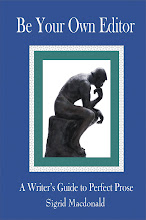Have a happy holiday. That's an easy sentence to conjugate. We all know that the article to use before the word happy is “a.” It would be unusual to see someone write, "have an happy holiday" and your spell-check is likely to pick that up.
What becomes complicated is when we talk about words like historical or Hispanic. Some people use “an” before historical – “It was an historical occasion” -- and other people don't. What's the deal? According to The Chicago Manual of Style, if your word begins with a silent “h,” you should use the article “an.” If the word begins with a hard ‘h,” use “a.”
Consequently, an historical occasion is only correct if you don't pronounce the “h” in historical. This seems easier to work out verbally because some of us say “herb” and others say “erb.” But to be on the safe side, have a system or use a style guide. I use the Chicago rule even though I know that some people will prefer “an historical holiday” to “a historical holiday.”
To learn how this differs for Americans and Brits, or for people of different age groups, read Tina Blue’s “article on articles” at http://grammartips.homestead.com/historical.html.
Sigrid Macdonald is the author of three books including Be Your Own Editor, available in print on Amazon or as an e-book on Smashwords.com.
Subscribe to:
Post Comments (Atom)



No comments:
Post a Comment